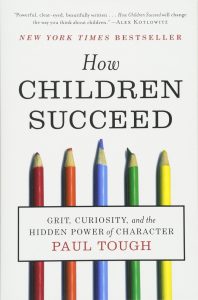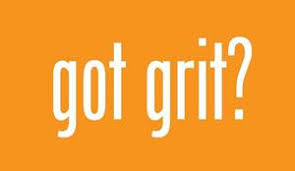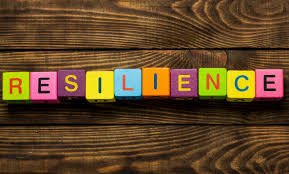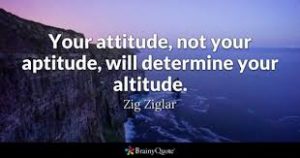As I have mentioned previously, my original Action Plan was to increase Grit, Resilience and Perseverance with Grade 2 Math students, but I expanded my plan to incorporate supporting teachers with this outcome for all students. Before I get into writing about how my action plan is going, (slowly in case you are wondering) I wanted to give you a little background knowledge on where we are as a Jr. School community on this topic. I have spoken to many of you about the work we have done at Hillfield Strathallan College on Mindset, Grit, and Resilience. I think we have learned a great deal and come a long way, and I would like to share the following blog written together with a colleague of mine, Kathleen Collins, and our Principal, Shailau Spivak, who both led our amazing team of educators on this journey.
In late 2014, the Junior School Staff undertook an evaluation of our existing report card format. We launched a book study of Paul Tough’s How Children Succeed,  as the beginning of what turned out to be a two year study of what we valued in terms of what makes students successful long term. Tough’s book forced us to articulate exactly what we valued as a College and also what we intuitively knew was more important than an ‘A’ in Science. Grit and resilience rang true on all accounts. As a follow-up to Tough’s book, we read the Marshmallow Test to further our research into resilience and goal setting. We knew at that point that we needed to do some further work. We worked with The Character Lab and the University of Pennsylvania, and made a few conference calls with Dominic Randolph, Head of Riverdale Country Day School, in New York City. After our initial research phase, we started a committee to examine our report cards to ensure that they were aligned with the Character Lab and our partnership with the University of Pennsylvania.
as the beginning of what turned out to be a two year study of what we valued in terms of what makes students successful long term. Tough’s book forced us to articulate exactly what we valued as a College and also what we intuitively knew was more important than an ‘A’ in Science. Grit and resilience rang true on all accounts. As a follow-up to Tough’s book, we read the Marshmallow Test to further our research into resilience and goal setting. We knew at that point that we needed to do some further work. We worked with The Character Lab and the University of Pennsylvania, and made a few conference calls with Dominic Randolph, Head of Riverdale Country Day School, in New York City. After our initial research phase, we started a committee to examine our report cards to ensure that they were aligned with the Character Lab and our partnership with the University of Pennsylvania.
We held a series of meetings and formed a Committee to examine proposed changes, including the key character traits or success skills we wanted to comment on via the “front page” of our report cards. The process of narrowing down and defining our list of traits was long and at times heated, but eventually we came to a consensus. We also reached the determination that if we wanted to provide valuable and credible feedback on success skills like perseverance and passion, we needed to teach students about these traits explicitly.
A colleague and member of this committee, Kathleen Collins, completed a series of online courses in the Summer/Fall of 2015 and obtained a Diploma in Character Education Development from the University of San Diego. During that time she reviewed and evaluated many existing character programs as tools to teach our established list of success skills. It quickly became clear that while each program had strengths, none of them was an exact fit for our needs. To fill the gap, Kathleen combined multiple course requirements to create one larger project – a new character framework for our school. The program included a poster campaign, resource lists, including picture books and games related to each of our traits, and a compilation of lesson plan ideas borrowed from existing resource books, websites, researchers, and of course, Pinterest and Teachers Pay Teachers.
In the Spring of 2016 the framework was presented to our administration and staff. Feedback was incorporated, and the REACH for the Stars program was adopted. It was launched in September 2016 and was quickly incorporated into our Junior School shared discourse. We hung posters in each classroom and sent home postcards for parents to display on their fridges.  We implemented a “Character Board” to display character messages and student work. We planned assemblies related to our REACH traits, and our Principal visited classrooms throughout the year to teach about particular traits by reading picture books or showing videos and completing follow-up lessons and activities. This year, we have expanded our character bin program to include more classroom resources for each of our REACH traits, often capitalizing on cross-curricular ties. For example, Mufaro’s Beautiful Daughter is an engaging picture book that teaches Grade 4s about honesty while also complementing their year-long study of Africa.
We implemented a “Character Board” to display character messages and student work. We planned assemblies related to our REACH traits, and our Principal visited classrooms throughout the year to teach about particular traits by reading picture books or showing videos and completing follow-up lessons and activities. This year, we have expanded our character bin program to include more classroom resources for each of our REACH traits, often capitalizing on cross-curricular ties. For example, Mufaro’s Beautiful Daughter is an engaging picture book that teaches Grade 4s about honesty while also complementing their year-long study of Africa.
The traits that the Junior School chose to focus on were Respect, Effort, Attitude, Control of Self and Honesty. Each term these traits are assessed using a 4 point scale and commented on anecdotally, on the front cover of our report cards. Additionally, we include a cover which students complete highlighting their accomplishments and goals where they provide examples of how they have demonstrated some of our REACH character traits. Currently our reports cards do not have subject grades for the first term, but rather an anecdotal comment alone. During second and third term, subject skills are indicated by a four point scale. The 4 point scale used throughout the whole report card is as follows; 1 – needs more time to develop this skill, 2 – demonstrates skill some of the time, 3 – demonstrates skill most of the time, and 4 – demonstrates skill consistently. This year we will evaluate whether or not we will replace our current report card vocabulary with language that further represents a learning journey rather than a fixed evaluation.
Some great resources for us on our journey have been;
Canadian Positive Psychology Association
Shawn Achor – GoodThink Inc., The Happiness Advantage
Dominic Randolph at Riverdale Country Day School – New York City
Marshmallow Test – Walter Mischel
How Children Succeed – Paul Tough
Character Lab
Angela Duckworth
KIPP Schools
University of San Diego Continuing Education Department
Mary Cay Ricci “Mindsets in the Classroom – Everything Educators Need for School Success”
There is much research being done on Grit and Resilience and we have seen the benefits of incorporating this very important area of education into our classrooms. We still have lots of work to do, but are definitely all working together to ‘REACH’ our potential.



This is a great post. Thanks for sharing how you and your colleagues are bringing real action toward supporting intellectual, character, and resiliency development . I really like REACH as a tool to bring these life in student-friendly language.
Thanks,
Garth.
Lisa, I too am impressed and encouraged by the work you and your colleagues have put into the revitalization of your report cards! I absolutely love what you have done, so much so that I will be bringing this model to my admin.
@gnichols thank you for linking me back to this post.
What I like about it most is the message it is sending to students. That learning will always be a journey. That is does not end in a number. This is feed forward rather than feed back.
I did want to bring something up that I have been grappling with lately. More specifically I have been grappling with the word grit. Growth mindset and grit are two words that are often conflated. Perhaps falsely so? I had recently read a excerpt from a book by Alfie Kohn. You can read it here: http://www.alfiekohn.org/article/downside-grit/
Kohn’s basic argument is that “grit” is actually the protestant work ethic repackaged and rebranded. In other words, it is the same “if you pull yourself up by your bootstraps you will succeed” mentality. Generally, this work ethic has been criticized for not taking into account the social privileges and disadvantages that are present in all children’s lives. (See interesting article here: https://www.washingtonpost.com/news/answer-sheet/wp/2016/05/10/the-problem-with-teaching-grit-to-poor-kids-they-already-have-it-heres-what-they-really-need/?utm_term=.cc056651275f)
I am not trying to criticize grit, but start a conversation that teachers don’t often have. In my day to day, I love to see perseverance and determination in my students. I also understand that the ability to delay gratification (i.e. what the Marshmallow Test discusses) definitely leads to objective success.
My point: I wonder if growth mindset (the belief that ability can change and grow) should not be mixed with grit (the passion and perseverance for long term goals). I have two reasons for this. First, the disregard for the complexities of privilege and the lack thereof. Second because of my own personal experience with delayed gratification. The first focuses on the present where the second focuses on the future. In my last post (https://cohort21.com/isabellabrown/2018/01/28/dear-students-we-lied/) I talk about the lie of delayed gratification. I worked hard to achieve the long term goal of becoming of teacher. I got there and realized I was not feeling gratified at all.
All in all, I feel your new report card model exemplifies the future of reporting. It aligns with my conception of growth mindset! But I wonder what you think about grit?
Thanks for hearing me out 🙂